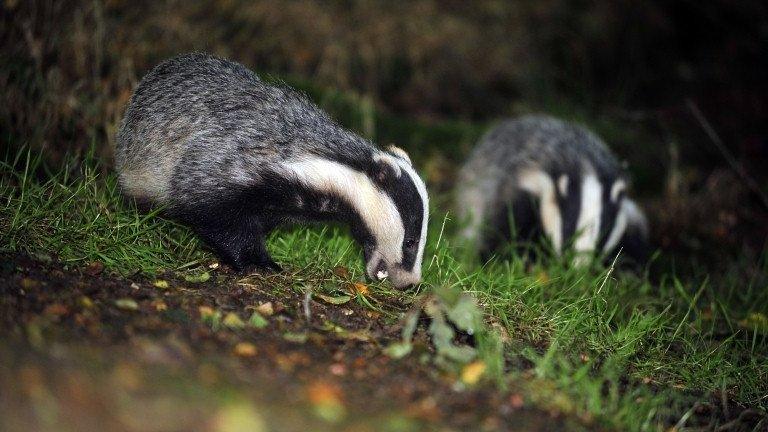The people risking arrest to stop the badger cull
- Published
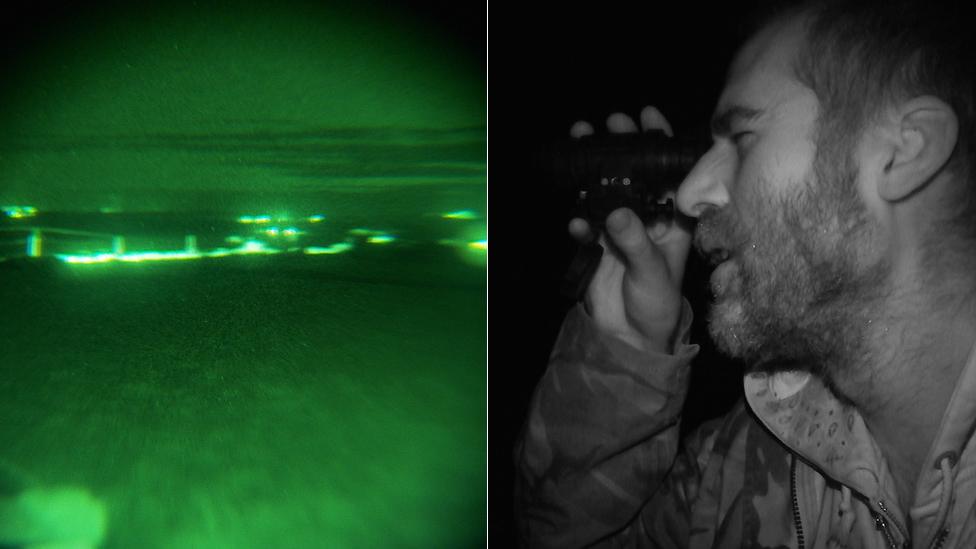
Saboteur Jay Tiernan uses night-vision equipment to find and confront marksmen shooting badgers
Last month the government approved the culling of badgers in seven new areas of England. BBC News spoke to two people from the legal - and illegal - sides of the campaign to stop it.
Dressed in camouflage, Jay Tiernan scans the Cornish countryside with night-vision kit, searching for "sharp shooters" killing badgers. The animal rights activist has risked being arrested or accidentally shot since the cull started last month.
He gave BBC Inside Out South West exclusive access to the world of the saboteurs.
Anti-cull saboteurs are trespassing on farms in Devon and Cornwall to release badgers from traps and destroy the cages.
"It does sound very scary - going out to stop some people who've got high powered rifles," he says.
"Sometimes farmers pop up and they're a bit angry and they're screaming and shouting, but we're not there to have arguments with farmers. I'm there to stop badgers from being killed."
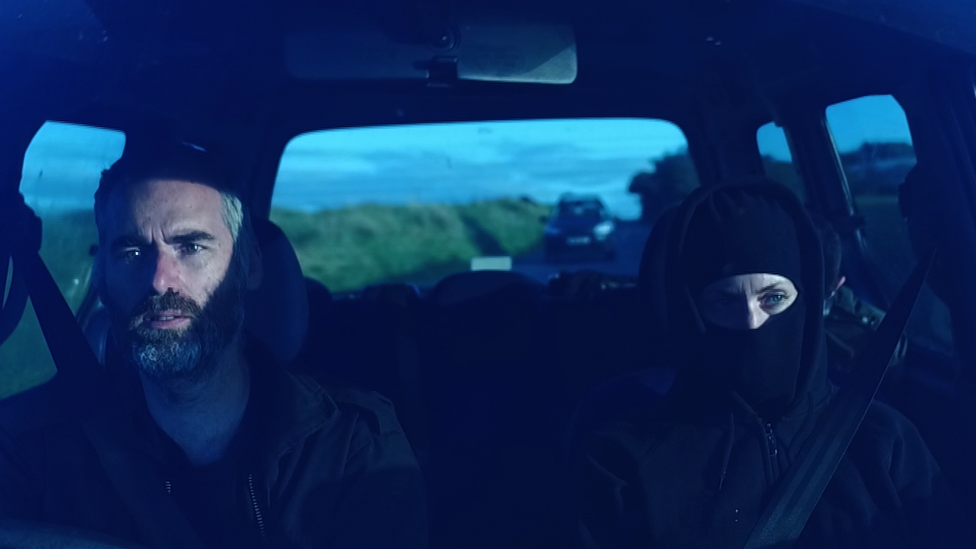
Jay Tiernan travels more than 1,000 miles a week to free badgers and destroy the traps they are caught in
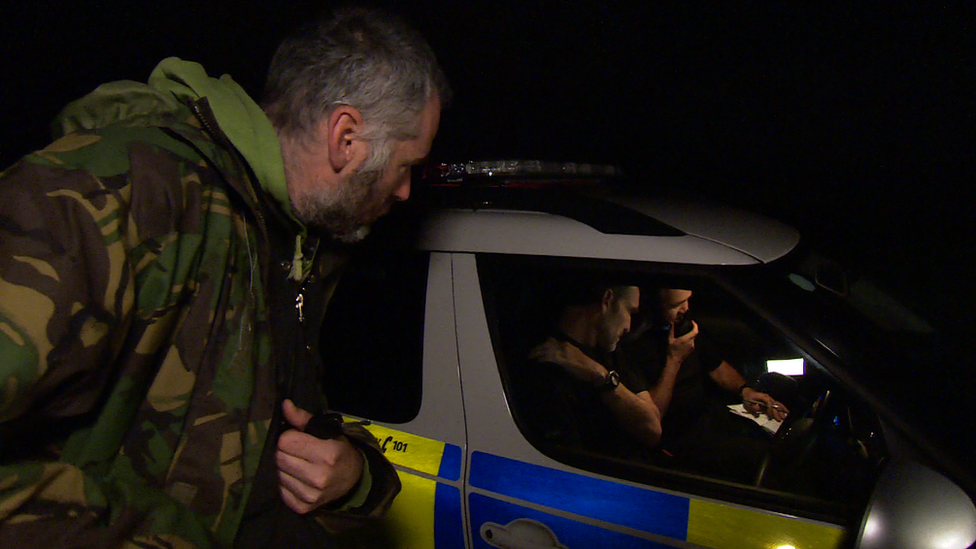
He says he often has run ins with the police while undertaking his saboteur tactics
Culling is part of the government's 25-year strategy, external to eradicate bovine TB, which it says costs the taxpayer £100m every year.
Mr Tiernan does not believe the science behind the government's plans stands up to scrutiny and travels more than 1,000 miles a week to try to save badgers.
However, the National Farmers' Union (NFU) condemns the actions of the saboteurs, labelling them a minority who resort to "harassment and intimidation to achieve their aims" and points out those culling badgers are acting within the law.
Tonight, Mr Tiernan has travelled to north Cornwall. He has already been thrown off one farm for trespassing. He was looking to free badgers from cages and destroy the traps.
At night he uses thousands of pounds worth of night-vision and thermal imaging equipment to search for marksmen shooting badgers in fields.
He then uses torches and makes enough noise to let the marksmen know he is near - making it unsafe for them to continue.
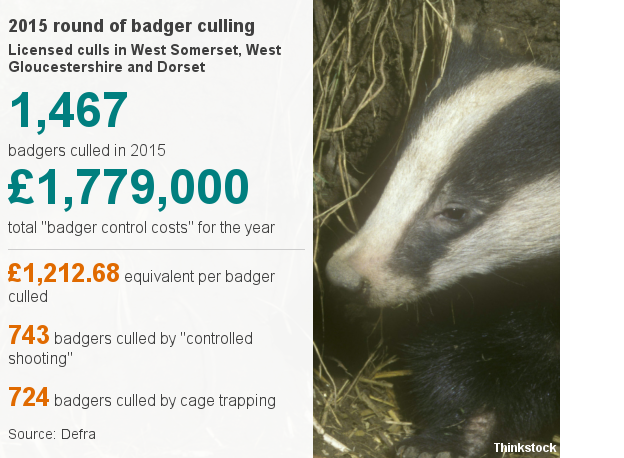
Last year he was given a suspended sentence for breaching an injunction stopping him from intimidating and harassing farmers.
He says he owes the NFU £120,000 in legal costs, but has no plan to stop carrying out what he calls "direct action".
"I couldn't sleep at night, I couldn't stay at home knowing that's going on in the fields of England," he says. "I've got to do something about that.
"Public support isn't what we need. What we need is more people going out into the field and people need to know what we are doing is effective. Are we stopping the killing of badgers? Yes we are."
Later in the night Mr Tiernan's tactics are not welcomed by another farmer who blocks him in - sandwiched between two tractors.
Mr Tiernan is detained on the private road for two hours and the farmer will not talk to him.
He said: "This won't put me off, it shows I'm getting under their skin - good."
Around midnight the police release Mr Tiernan and the farmer later says he was concerned about strangers being on his land late at night and thought we might have been thieves.
He said he was not opposed to the badger cull.
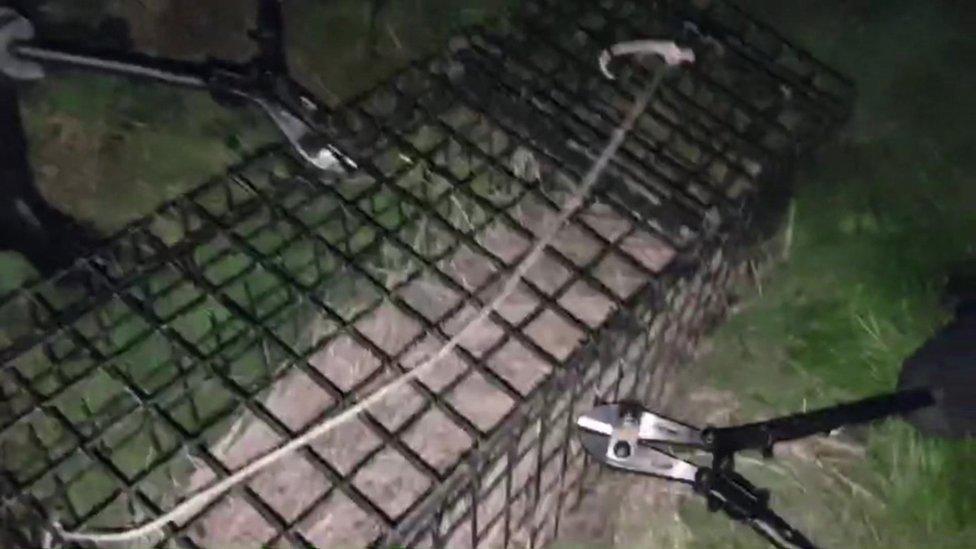
Anti-cull saboteurs trespass on farms and destroy badger traps
Meanwhile, armed with a flask, some cake and a torch, health worker Jenny Pike is fighting the cull on the right side of the law.
She is part of a growing number of badger patrol groups that have sprung up since the cull began.
After she finishes work she travels the 100 mile round trip from Plymouth to north Devon to walk public footpaths in the cull zone with other campaigners.
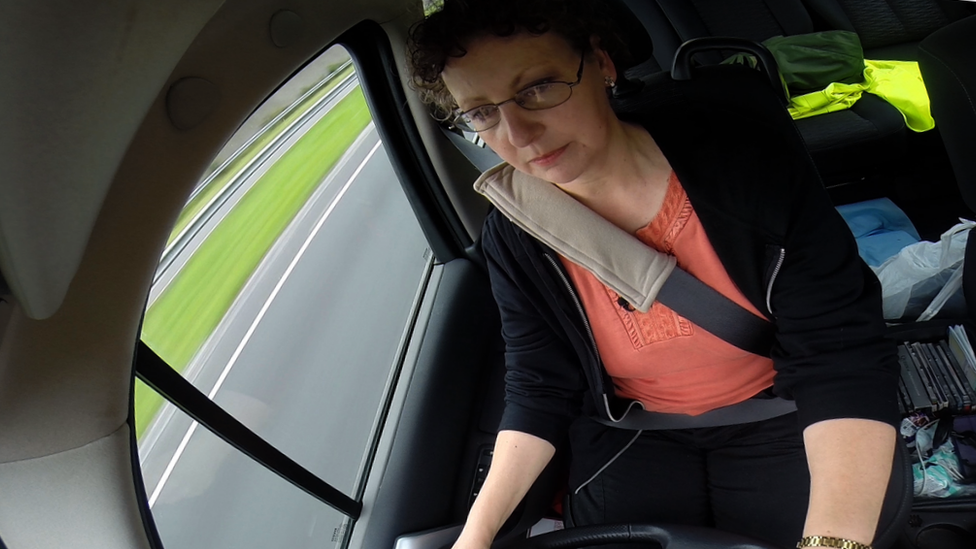
Jenny Pike travels more than 500 miles a week to go on patrol
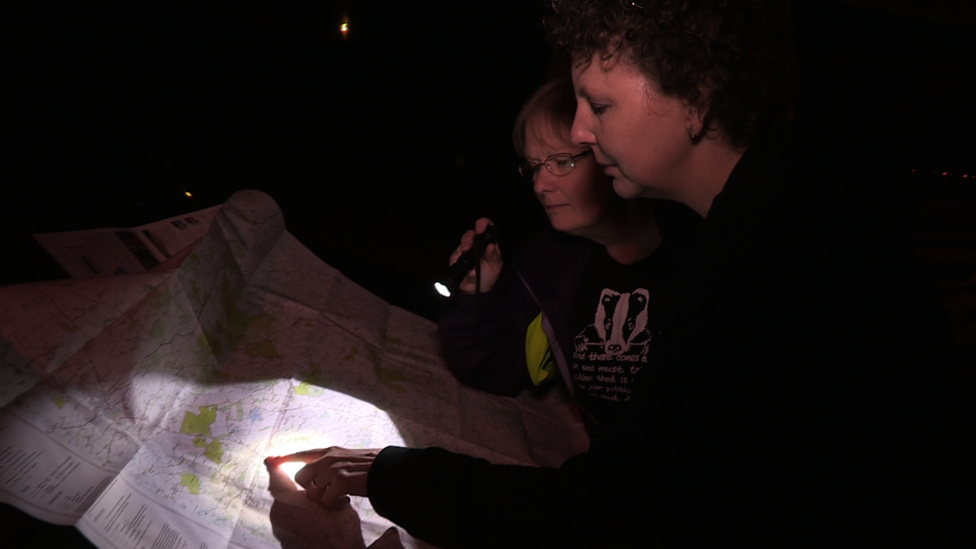
Unlike Mr Tiernan she does not trespass or destroy traps.
However, this does not mean that there are no conflicts with those in favour of the cull.
"Tensions are running high," she says. "I've heard of threatening behaviour and cars getting blocked in."
She says she became involved when the cull was introduced in Somerset in 2013.
"I just imagined the badgers that come to visit me in my garden and thought I'm not going to stand for that," she says.
"It's the most controversial policy that has been, it does divide communities."
Her group looks for wounded badgers and walks public footpaths in the cull zone in the hope any marksmen will be unable to shoot with members of the public nearby.

Badger cull targets for 2016
Devon: Minimum 3,358, maximum 4,558
Cornwall: Minimum 2,173, maximum 2,950
Gloucestershire: Minimum 1,691, maximum 2,628
Dorset: Minimum 1,672, maximum 2,350
Herefordshire: Minimum 872, maximum 1,183
Somerset: Minimum 75, maximum 544
Source: Natural England

She said: "We never know where shooting is going on, we just try and do what we can and hope we are in the right place at the right time."
The patrol includes a wide range of people, from nurses to builders to lawyers. Most will not get to bed until the early hours of the morning.
Ms Pike said: "We don't condone any criminal activity at all and we aren't into anything like that.
"As long as we can keep ourselves separate from that and keep saying we don't condone it hopefully people will see it's not us doing it.
"We'd love to sit round the table with famers to explain the situation but don't get the opportunity."
Inside Out South West is on BBC One on Monday 3 October at 19:30 BST and on the iPlayer for 30 days thereafter.
- Published7 September 2016
- Published30 August 2016
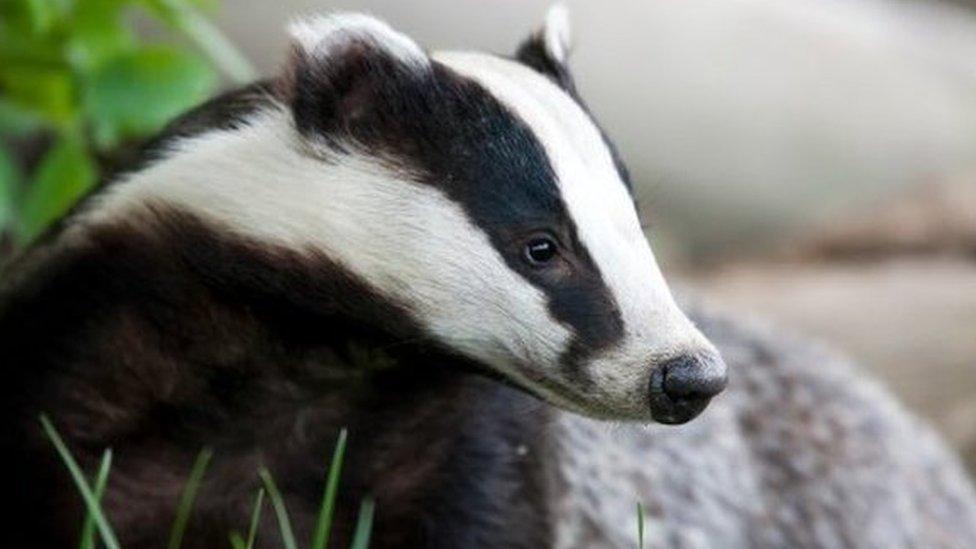
- Published23 August 2016
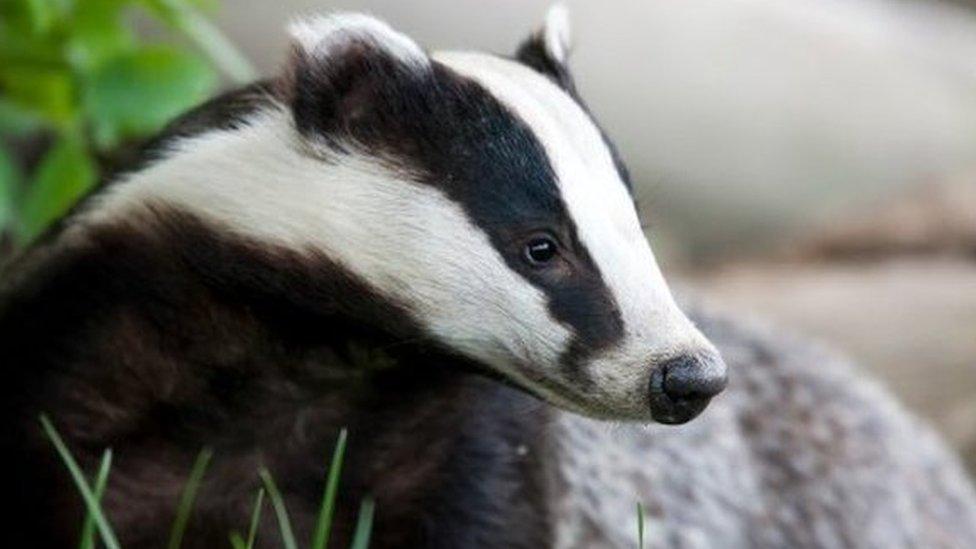
- Published17 December 2015

- Published19 February 2016
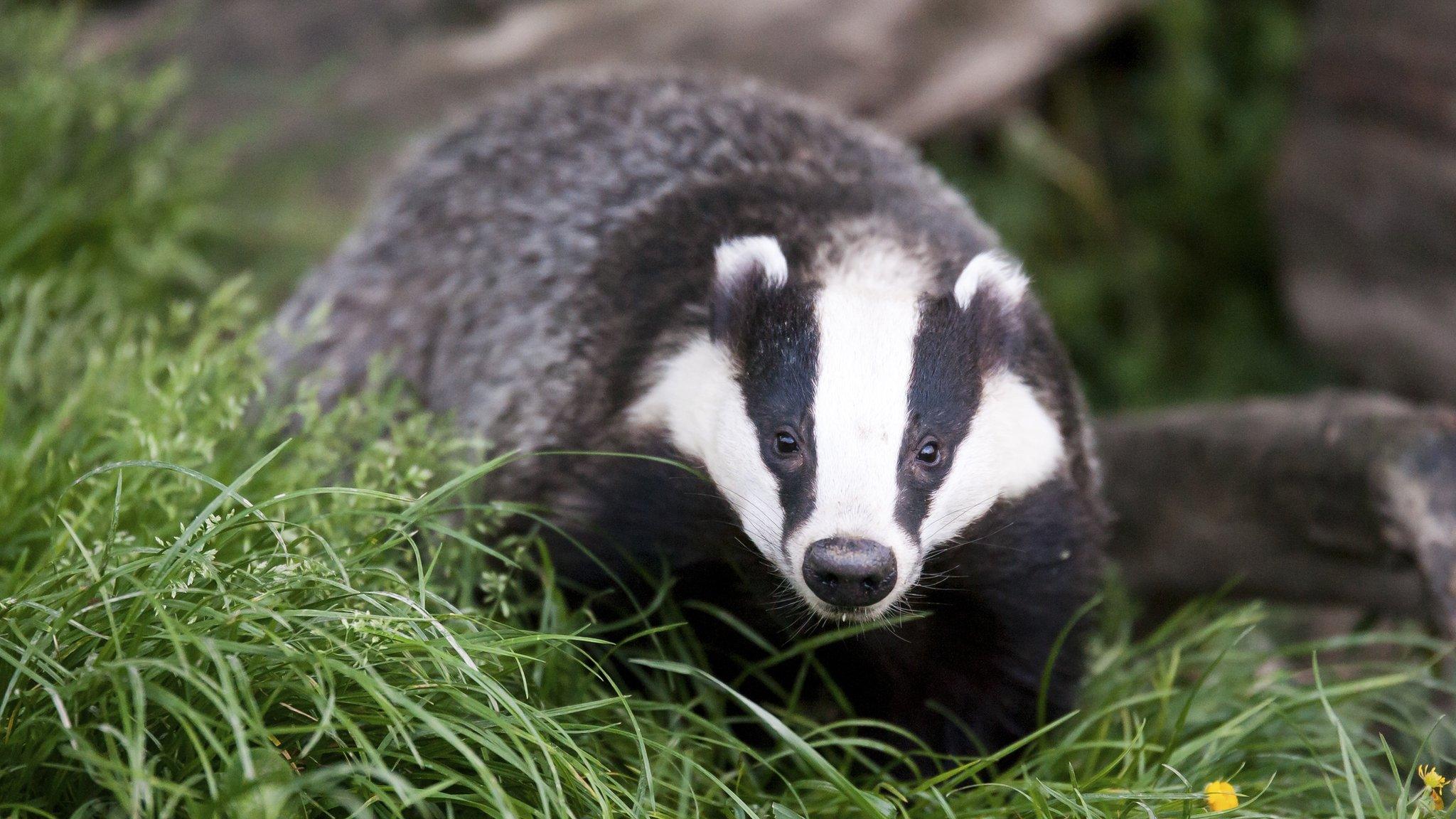
- Published6 February 2016
